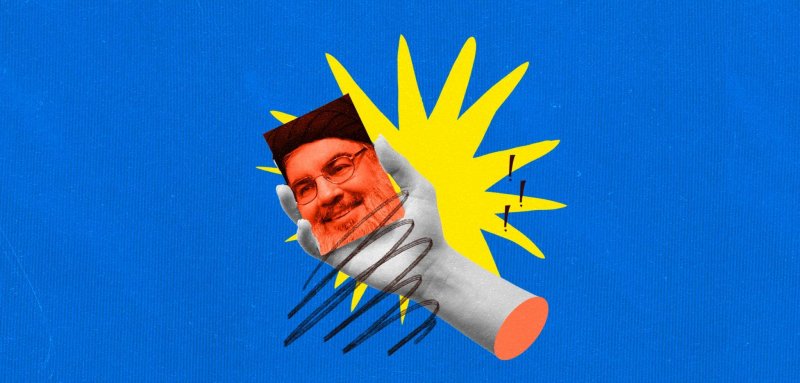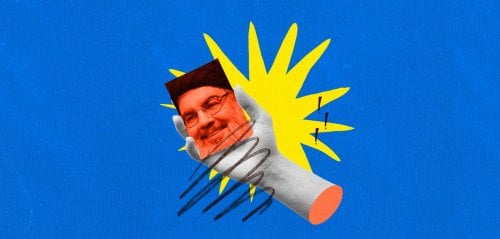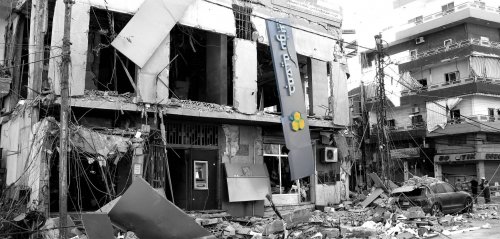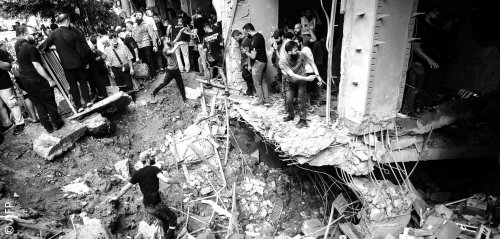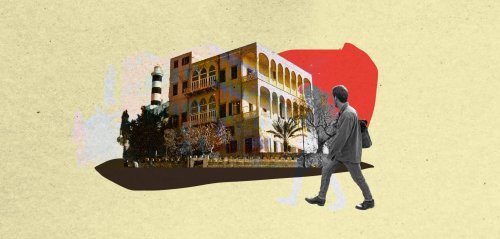I have written on several occasions that I don’t belong to Lebanon, or any country for that matter. I’m not saying this out of arrogance, nor because I am a "global citizen" or some other universal or internationalist nonsense. I honestly don’t know what the direct cause or exact reason is. Perhaps there are many reasons, including the fact that I had to live abroad, alone, for over twenty years. And who’s to blame? Lebanon?
What comforts me is that I have read reactions from many Lebanese people who felt the same as I did. They had plenty of criticism and hatred towards you, and poof! All that hatred disappeared when they assassinated you, my love. My love? A toxic relationship is what I have with Nasrallah.
Hmm, Lebanon? What is Lebanon? Who is Lebanon? Is it sane or insane? And who is sane in this mad country? Who created this strange mixture of nothing and everything?
This is just a ridiculous introduction from a Lebanese citizen on the margins of the "Lebanon"—and here, the definite article “the” is crucial to point the finger at a bullying nation, a bullying homeland. Yes, the homeland is a collective of citizens whose defining trait is bullying other peoples of the Arab world. After all, the Lebanese are more intelligent, more beautiful, more alert, more graceful, and more cultured than everyone else, just like in the song: "Tell them you're Lebanese... It's enough that you're Lebanese.. Lebnani, Lebninii!"
I wonder at these feelings I have towards you; a mix of anger, sadness, and lots of love after you’re gone. You had to die for me to love you.
That's how some mock our accent, portraying us as too soft, too spoiled and pampered. On the other hand, Arab men mostly agree that this soft accent has a favorable effect on certain body parts, and the mind is not one of them.
"Lebanon, oh piece of heaven"—a song dripping with narcissism and exaggeration, especially when I look up at the sky today from the bathroom window, the safest place I have.
Let's get back to why I hate Lebanon: betrayal and letdown. Everyone let me down—the government, taxi drivers, mall cashiers, the Resistance, and the man I loved.
I cried. We cried over your departure, and Lebanon became a sullen “piece of heaven.” I became a Lebanese chauvinist, hating anyone who spoke ill of my country. I had realized the cruelty of death and the absurdity of being violated by a vile enemy. In these past weeks, since the attack on us began, I have felt an urgent need to embrace all my fellow Lebanese people and say to them: I love you.
I felt betrayed and let down by everyone. Year after year, their image disintegrated like pieces of an old jigsaw puzzle—one you’re too lazy to put back together—leaving a fragmented, incomplete picture.
I’ll set aside the government, the drivers, the cashiers, and my lover for now. The ‘Sayyed of the Resistance’ beckons me to speak about him. I'll whisper a word in your ear, Sayyed Hassan: I opposed and cursed you many times. I hated you for what they say you did in Syria. I was shocked that you didn’t care about Lebanon’s economic situation. So, your cause wasn’t as humanitarian as I thought. In 2006, I adored you like a global hero. Are heroes driven by religion and foreign agendas? Haha—"foreign agendas," what a trivial cliché, as trivial as my feelings toward you; a mix of anger, sadness, and lots of love after you’re gone. You had to die for me to love you.
I weep bitterly because I’ve been harsh, because I spent time hating when I should have spent it loving, because I complained all these years without ever imagining I could lose everything at once. I weep bitterly for what has befallen my country.. my homeland.. my home..
What comforts me is that I have read reactions from many Lebanese people who felt the same as I did. They had plenty of criticism and hatred toward you, and poof! All that hatred disappeared when they assassinated you, my love. My love? A toxic relationship is what I have with Nasrallah.
I cried. We cried over your departure, and Lebanon became a sullen “piece of heaven.” I became a Lebanese chauvinist, hating anyone who spoke ill of my country. Not because of your overwhelming presence, or your ideology, or anything you said or did, but because I had realized the cruelty of death and the absurdity of being violated by a vile enemy. In these past weeks, since the attack on us began, I have felt an urgent need to embrace all my fellow Lebanese people and say to them: I love you.
I can hear the mocking laughs and sneers of bullies and those gloating over what happened. I don’t care. This war has mended my relationship with my country. I hid my love for you in my heart for years, fearing I’d seem weak, or like everyone else. But then, that love burst forth like a giant cloud, to the point of tears.
I can hear the mocking laughs of bullies at these miserable patriotic words and the sneers of those gloating over what happened. I don’t care. This war has mended my relationship with my country. I hid my love for you in my heart for years, fearing I’d seem weak, or like everyone else. But then, that love burst forth like a giant cloud, to the point of tears.
I look out the window of my home in a "Sunni area,” and I see a woman from the South, dressed in a black hijab while cleaning the glass and smiling. Dust swirls around her tired hands. How beautiful she is. How lovely this woman is. The women of the South are the most beautiful, I think to myself. I send her a kiss through the air. She doesn’t see it. She doesn’t see me.
I look out the window of my home in a "Sunni area,” and I see a woman from the South, dressed in a black hijab while cleaning the glass and smiling. Dust swirls around her tired hands. How beautiful she is. How lovely this woman is. The women of the South are the most beautiful, I think to myself. I send her a kiss through the air. She doesn’t see it. She doesn’t see me.
I weep bitterly because I’ve been harsh, because I spent time hating when I should have spent it loving, because I complained all these years without ever imagining I could lose everything at once. I weep bitterly for what has befallen my country.. my homeland.. my home.
Helplessness breaks me. This powerlessness tears at me. “What’s happening in Gaza is being repeated here,” the taxi driver tells me. “Lebanon is another Gaza, the same scenario.” I don’t respond. I look out the window into the distance, where the flames devour the sky, the same sky we raise our toasts and prayers to.
Helplessness breaks me. This powerlessness tears at me. “What’s happening in Gaza is being repeated here,” the taxi driver tells me. “Lebanon is another Gaza, the same scenario.” I don’t respond. I look out the window into the distance, where the flames devour the sky, the same sky we raise our toasts and prayers to.
Are we being punished for a crime we committed? Another foolish question swirls in my head. Children look at me from under bridges and at traffic lights—children all alone, dazed and stunned. They don’t cry. They watch the colors of the sky as it is lit up by bombs. They don’t know how to cry, or maybe they’ve forgotten. The children of Lebanon are stunned. The children of Lebanon are displaced. The children of Lebanon are homeless. I’ll get out of the car and hold them. I’ll be their sky. Enough nonsense, Nisreen, when did you become such a dreamer?
I’ll go back to my room and try crying myself to sleep. Please, don’t wake me, as I am sad. So very sad.
Are we being punished for a crime we committed? Another foolish question swirls in my head. Children look at me from under bridges and at traffic lights—children all alone, dazed and stunned. They don’t cry. They watch the colors of the sky as it is lit up by bombs. They don’t know how to cry, or maybe they’ve forgotten. The children of Lebanon are stunned. The children of Lebanon are displaced. The children of Lebanon are homeless. I’ll get out of the car and hold them. I’ll be their sky. Enough nonsense, Nisreen, when did you become such a dreamer?
I turn on the television. The resistance fighters in Maroun al-Ras send me a kiss—it goes through the glass and pierces my heart.
Your humanity is dead, but Lebanon lives on.
* The views and opinions expressed in this article are those of the author’s and do not necessarily reflect the official policy or position of Raseef22
Raseef22 is a not for profit entity. Our focus is on quality journalism. Every contribution to the NasRaseef membership goes directly towards journalism production. We stand independent, not accepting corporate sponsorships, sponsored content or political funding.
Support our mission to keep Raseef22 available to all readers by clicking here!
Interested in writing with us? Check our pitch process here!
